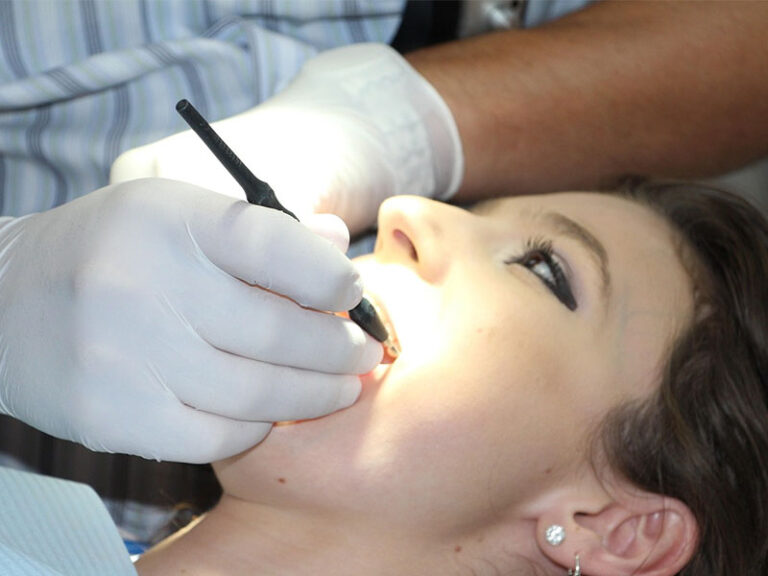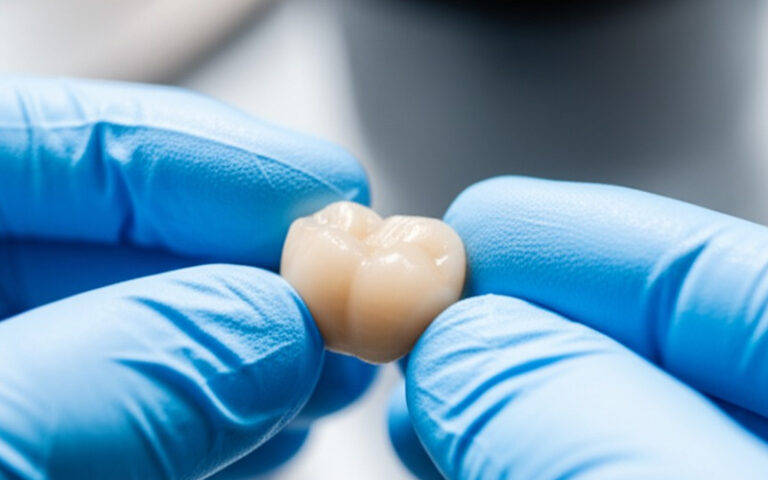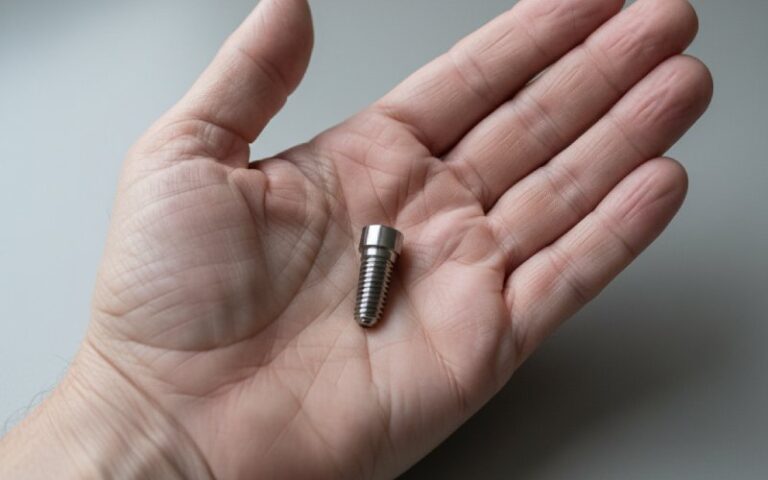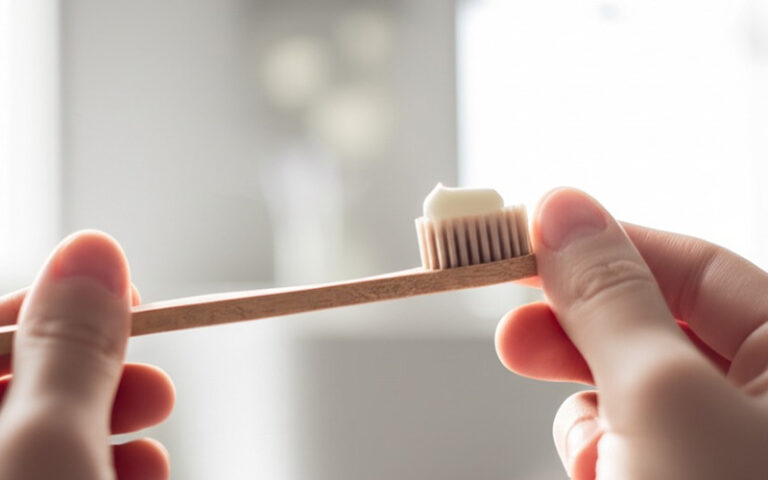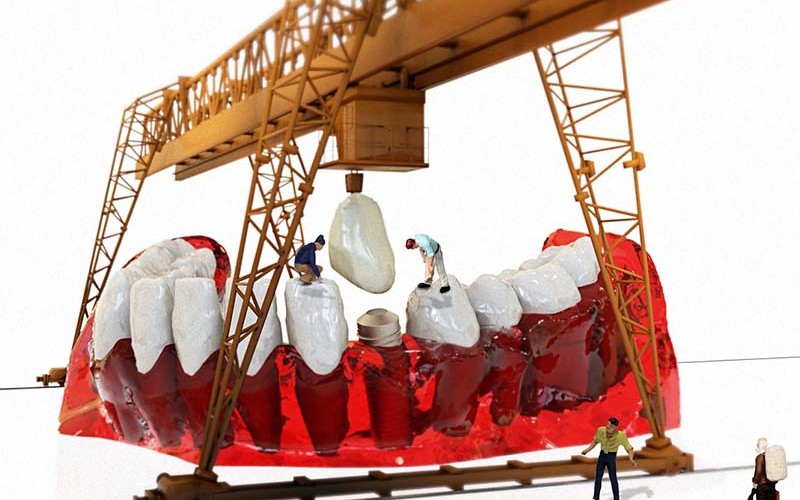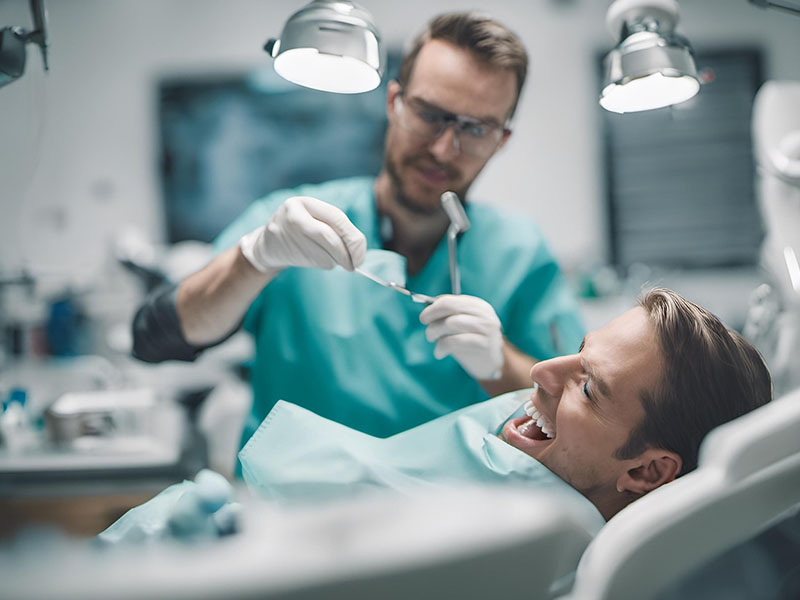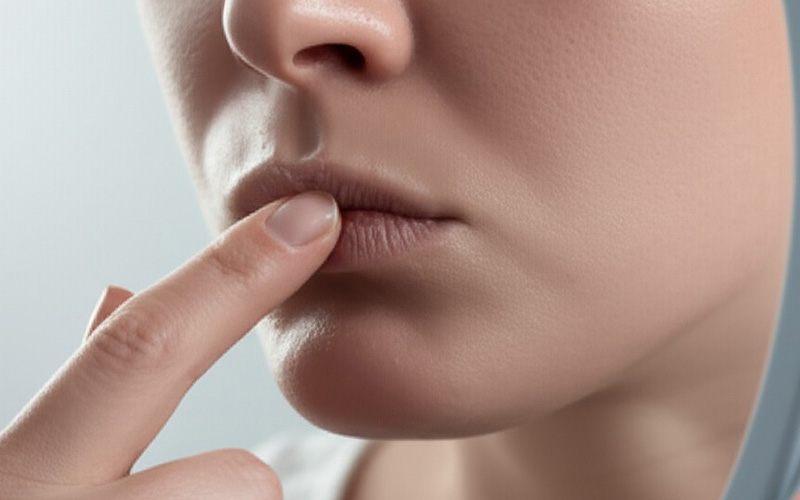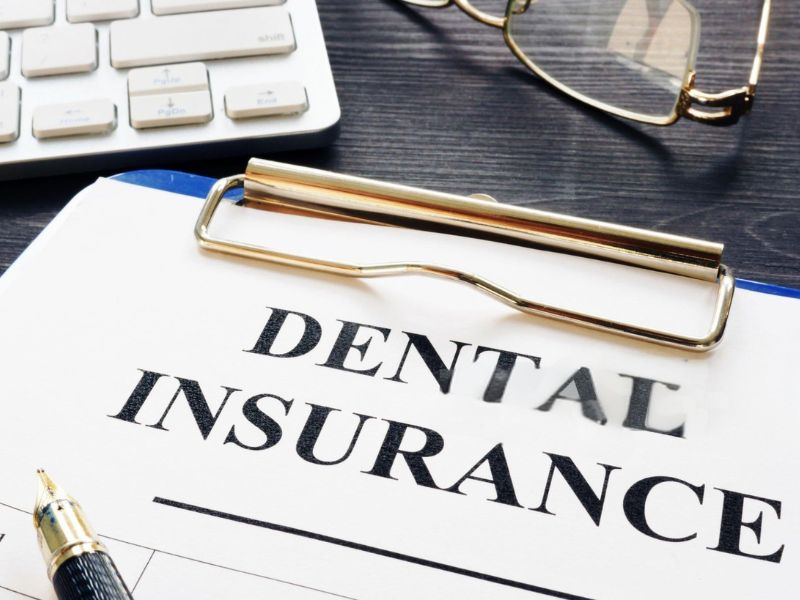
Do You Clench or Grind Your Teeth? All About Bruxism and Grinding at Night
If you have sore jaws, headaches, or worn-down teeth, you might have bruxism. This article is for you. I will share everything about why we clench or grind our teeth and what we can do about it.
Indholdsfortegnelse
What Exactly Is Bruxism?
It’s just a fancy medical term for when you grind or clench your teeth. A lot of people do it and don’t even know it. This grinding and clenching can happen when you are awake or asleep. When it happens during the day, it’s called awake bruxism. This is often when you clench your jaw because you are stressed, worried, or concentrating hard on something like a tough writing deadlineI.
The other type is called sleep bruxism. This is when you grind or clench your teeth while you are sleeping. This type of bruxism can be a bigger problem because you can’t control it. You might grind your teeth together with a lot of force and not even realize it. The condition is very common. The National Institute of Dental and Craniofacial Research says millions of adults and children have some form of bruxism. Bruxism can happen to anyone at any age.
This unconscious action is more than just a bad habit. The constant pressure from the grinding of teeth can cause real problems for your teeth and jaw. Over time, this can wear down your tooth enamel, which is the hard, protective outer layer of your tooth. This condition, called bruxism, is something you should talk to your dentist about if you think you have it.
What Are the Main Symptoms of Teeth Grinding?
The first big clue is the jaw pain. But there are many other symptoms of teeth grinding. You might wake up with a dull headache or pain in your face. Your jaw muscle might feel tired or tight, almost like it ran a marathon overnight. Some people even have earaches, but it’s not really an ear problem. It’s pain from the jaw area spreading out. A sure sign of bruxism is a change in your teeth.
Your teeth might look flat on top, or they could be chipped or loose. You might even have damaged teeth. Your tooth enamel can get so worn down that the inner part of the tooth, called the dentin, becomes exposed. This can make your teeth very sensitive to hot or cold foods. Your sleep partner might be the first to notice the loud sounds of you grinding your teeth in your sleep. These are all common bruxism symptoms. If you notice any of these things, it is a good idea to pay attention to these early signs of bruxism.
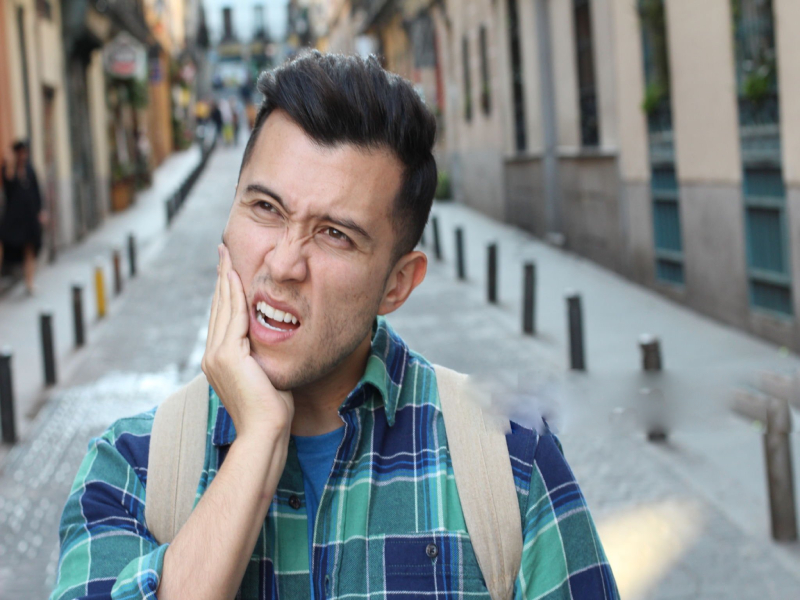
How Is Bruxism Diagnosed by a Dentist?
Figuring out if you have bruxism usually starts with a trip to the dentist. When explaining your jaw pain, your dentist knows what to look for. The first thing they will do is check your teeth. They look for the classic signs, like worn-down enamel and tiny cracks in a tooth. They will also check your mouth and jaw for soreness.
To diagnose bruxism, your dentist will ask you questions about your life. They might ask if you are under a lot of stress, what your sleep habits are like, and if you drink caffeine or alcohol. In most cases, a simple dental exam is enough for a diagnosis. Bruxism diagnosed this way is very common.
If your bruxism is very bad, or if the dentist thinks it might be linked to a sleep disorder, they might suggest you see a doctor. For sleep-related bruxism, you may need a sleep study. This is where you sleep in a special lab overnight while doctors monitor you. This helps them diagnose sleep bruxism for sure and check for other issues like sleep apnea.
What Are the Top Causes of Teeth Grinding?
So, why do we do it? What causes bruxism? For many people the biggest cause is stress and anxiety. When we feel worried or overwhelmed, we often clench our jaw without thinking. This can carry over into our sleep. Other strong feelings, like anger or frustration, can also make you grind your teeth. This is a major cause of bruxism.
Other causes of teeth grinding can be related to your body. Sometimes, people grind their teeth because their upper or lower teeth are not lined up right. This is called a malocclusion. For some, tooth grinding can be a side effect of certain medicines. The causes include lifestyle choices, too. Drinking alcohol or a lot of caffeine can make bruxism worse.
It is also linked to other health issues. People with sleep bruxism often have other sleep problems, like snoring or obstructive sleep apnea. This is a serious condition where you stop breathing for short periods during sleep. The grinding motion might be the body’s way of trying to reopen the airway. Understanding the causes and symptoms is the first step to finding relief.
Who Is Most at Risk for Bruxism?
Some people are more likely to develop bruxism than others. The biggest risk for bruxism is stress. If you have a high-stress job or are going through a tough time in your life, you are more likely to grind your teeth. Your personality can also play a role. People who are very competitive, rushed, or aggressive seem to have a higher risk of bruxism.
Age is another factor. Bruxism is common in young children, but many outgrow it by the time they get their adult teeth. Family history matters, too. Bruxism tends to run in families. If your parents or siblings have it, you have a higher chance of getting it yourself.
Finally, other habits and conditions can increase your risk. Smoking, drinking alcohol, and using caffeine can all make bruxism more likely. Having other sleep-related disorders such as sleep apnea puts you at a much higher risk. These are all key risk factors for bruxism.
What Is Sleep Bruxism and Why Do People Grind Their Teeth at Night?
Sleep bruxism is the official name for when you grind your teeth during sleep. This is the type that can do the most damage because you have no control over it. While you are asleep, you can clench your jaw with incredible force. People grind their teeth for different reasons, but when it happens during sleep, it is often linked to small awakenings.
Most people who grind their teeth at night don’t fully wake up. Instead, their brain has a brief “arousal” from deep sleep. Right around that time, the jaw muscles get active, and the clenching and grinding of teeth begins. This can happen many times a night. This is why grinding at night can leave your jaw muscle feeling so sore in the morning.
Many experts in sleep medicine believe there is a strong link between sleep bruxism and other sleep issues. For example, people with severe bruxism are often found to have disorders such as sleep apnea. The body might be trying to grind to keep the airway open. This is why if you have severe sleep bruxism, your doctor might recommend a sleep study.
How Can Grinding During Sleep Affect My Health?
At first, grinding during sleep might not seem like a big deal. But over time, bruxism can lead to serious problems. The most obvious issue is the damage to the teeth. The constant grinding wears down your enamel. This can lead to fractures, chipped teeth, and increased sensitivity. In bad cases, it can wear a tooth down to a stump.
But the problems don’t stop there. The pressure on your teeth and jaw can cause chronic headaches and facial pain. It can also lead to a disorder of the jaw joint, called TMD. This can make it painful to chew, talk, or even open your mouth wide. Severe bruxism can really affect your quality of life.
There’s also the link to other health problems. As we talked about, sleep bruxism is closely tied to obstructive sleep apnea. If you have sleep apnea, you are not getting good rest, which can lead to daytime sleepiness and increase your risk for high blood pressure and heart problems. So, what starts as a simple tooth grinding habit can be a sign of something more. The result of bruxism can be more than just a sore jaw.
What Is a Key Symptom of Sleep Bruxism?
If you had to pick one key symptom of sleep bruxism, it would be waking up with pain. This could be a dull headache that is centered in your temples. Or it could be a sore, tired jaw muscle. This pain is a direct result of clenching and grinding your teeth at night. Your muscles are working hard all night long when they should be resting.
Another major sign is the sound. Your sleep partner may be the first to tell you that you grind your teeth. The sound of grinding of the teeth can be loud and unpleasant, and it is a very clear sign that bruxism may be happening. If you sleep alone, you might not know about the noise, so you have to rely on other symptoms of sleep.
Your dentist can spot the physical evidence. Worn-down surfaces on your bottom teeth or upper or lower teeth are a giveaway. They might also see tiny fractures. The combination of morning pain and physical signs on your teeth makes a strong case for sleep bruxism. If you experience this, it’s a good reason to see a professional.
What Are the Symptoms and Causes I Should Know?
Let’s do a quick review of the main symptoms and causes. The symptoms of bruxism include jaw pain, headaches, earaches, and worn or damaged teeth. You might also notice that you clench your jaw during the day when you feel stressed or focused. These symptoms can be mild, or they can be so bad they disrupt your daily life.
The cause of bruxism is often tied to your emotional state. Stress, anxiety, and frustration are huge triggers. Other causes of teeth grinding can include a misaligned bite, side effects from medication, or lifestyle choices like drinking caffeine. It’s also important to remember the connection between sleep bruxism and other sleep disorders, especially sleep apnea.
Knowing these causes and symptoms is powerful. It helps you understand what might be going on in your own body. For example, if you notice you clench their teeth more during a stressful week at work, you have found a direct link. This can help you and your doctor figure out the best way to manage your bruxism.
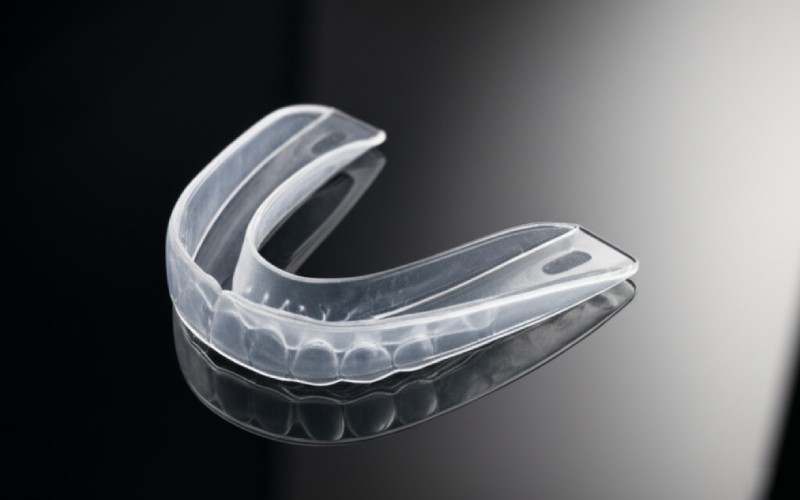
What Is the Best Treatment for Sleep Bruxism?
The most common and effective treatment is a custom-fit mouth guard. This is a special piece of plastic that you wear over your teeth while you sleep. It won’t stop you from clenching, but it acts as a cushion. This is a great way to protect your teeth from damage. A mouth guard to protect your teeth is a simple solution.
The second part of the treatment is to address the root causes. Since stress is a big factor, learning how to manage it can make a huge difference. Try to start practicing deep breathing exercises before bed. Improving your sleep hygiene is also very helpful. This means going to bed at the same time every night, keeping your room dark and quiet, and avoiding screens before bed. Good sleep hygiene can lead to better, deeper sleep with less grinding.
For people with severe bruxism, more steps might be needed. This could include physical therapy to help relax the jaw muscle or even medication in rare cases. If sleep apnea is suspected, a sleep study is the next step. The goal is not just to grind less, but to get a better night’s sleep and protect your teeth for the long run. It’s a simple tool that has made a world of difference.

